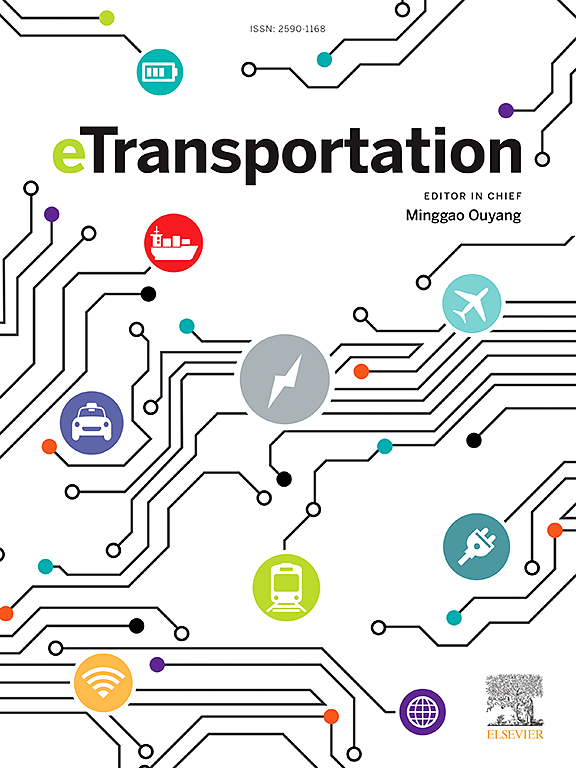Trustworthy V2G scheduling and energy trading: A blockchain-based framework
IF 17
1区 工程技术
Q1 ENERGY & FUELS
引用次数: 0
Abstract
The rapid growth of electric vehicles (EVs) and the deployment of vehicle-to-grid (V2G) technology pose significant challenges for distributed power grids, particularly in fostering trust and ensuring effective coordination among stakeholders. Establishing a trustworthy V2G operation environment is crucial for enabling large-scale EV user participation and realizing V2G's potential in real-world applications. In this paper, an integrated scheduling and trading framework is developed to conduct transparent and efficacious coordination in V2G operations. In blockchain implementation, a cyber-physical blockchain architecture is proposed to enhance transaction efficiency and scalability by leveraging smart charging points (SCPs) for rapid transaction validation through a fast-path practical byzantine fault tolerance (fast-path PBFT) consensus mechanism. From the energy dispatching perspective, a game-theoretical pricing strategy is employed and smart contracts are utilized for autonomous decision-making between EVs and operators, aiming to optimize the trading process and maximize economic benefits. Numerical evaluation of blockchain consensus shows the effect of the fast-path PBFT consensus in improving systems scalability with a balanced trade-off in robustness. A case study, utilizing real-world data from the Southern University of Science and Technology (SUSTech), demonstrates significant reductions in EV charging costs and the framework's potential to support auxiliary grid services.
可信的 V2G 调度和能源交易:基于区块链的框架
电动汽车(EV)的快速增长和车联网(V2G)技术的部署给分布式电网带来了巨大挑战,尤其是在促进信任和确保利益相关者之间的有效协调方面。建立可信的 V2G 运行环境对于电动汽车用户的大规模参与和实现 V2G 在实际应用中的潜力至关重要。本文开发了一个综合调度和交易框架,以在 V2G 运营中进行透明、高效的协调。在区块链实施方面,本文提出了一种网络物理区块链架构,利用智能充电站(SCP),通过快速路径冗余容错(fast-path practical byzantine fault tolerance,Fast-path PBFT)共识机制进行快速交易验证,从而提高交易效率和可扩展性。从能源调度的角度来看,采用了博弈论定价策略,并利用智能合约在电动汽车和运营商之间进行自主决策,旨在优化交易过程,实现经济效益最大化。对区块链共识的数值评估表明,快速路径 PBFT 共识在提高系统可扩展性的同时,还兼顾了稳健性。利用南方科技大学(SUSTech)的实际数据进行的案例研究表明,电动汽车充电成本显著降低,该框架具有支持辅助电网服务的潜力。
本文章由计算机程序翻译,如有差异,请以英文原文为准。
求助全文
约1分钟内获得全文
求助全文
来源期刊

Etransportation
Engineering-Automotive Engineering
CiteScore
19.80
自引率
12.60%
发文量
57
审稿时长
39 days
期刊介绍:
eTransportation is a scholarly journal that aims to advance knowledge in the field of electric transportation. It focuses on all modes of transportation that utilize electricity as their primary source of energy, including electric vehicles, trains, ships, and aircraft. The journal covers all stages of research, development, and testing of new technologies, systems, and devices related to electrical transportation.
The journal welcomes the use of simulation and analysis tools at the system, transport, or device level. Its primary emphasis is on the study of the electrical and electronic aspects of transportation systems. However, it also considers research on mechanical parts or subsystems of vehicles if there is a clear interaction with electrical or electronic equipment.
Please note that this journal excludes other aspects such as sociological, political, regulatory, or environmental factors from its scope.
 求助内容:
求助内容: 应助结果提醒方式:
应助结果提醒方式:


